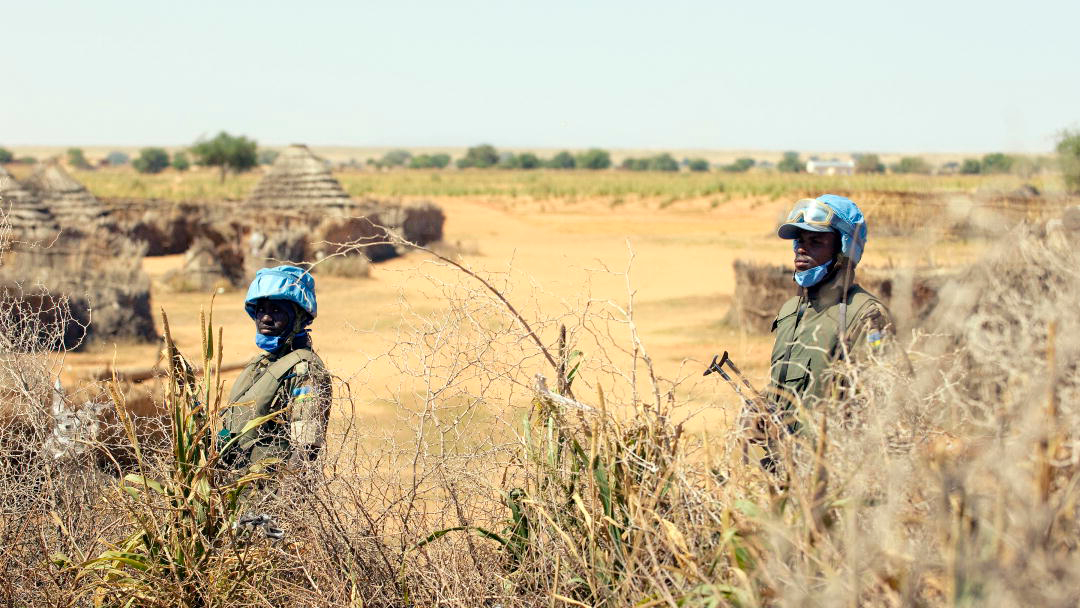With international collaboration common to international research, race frequently structures the professional hierarchies of projects. But are there problems with researchers believing they are ‘doing things differently’? Transformative attempts to decolonise the research environment must seek transparent, collective action to rid its colonial relics.
This post is part of the series Rethinking ethics and identity in fieldwork.
I was in a teaching room at the Saint-Joseph convent in Kalemie, in the province of Tanganyika, Democratic Republic of the Congo (DRC), to conduct training on research methods for a project on the ‘Twa-Bantu’ armed conflict in the province. With me were three colleagues – Paulin Bazuzi, Eustache Kuliumbwa and Issa Kiemtoré – and a large team of researchers from the area. The mosaic portraits of Albert I of Belgium and Cardinal Lavigerie, towering figures of colonial rule and colonial ideology, stared at us the entire time with a little grin, reminding us that the colonial question continues to weigh on our lives.
I belong to a generation of white researchers who are increasingly aware of the history of colonialism. Yet, what my generation and I often don’t fully comprehend is that colonialism is not a thing of the past, withering away gradually with time. The ideologies and racial ‘regimes of inequality’ built in the days of Lavigerie persist and take new forms, which the literature on coloniality has been uncovering and the movement to decolonise the university has been addressing. To white people these are often invisible because, as authors such as Stuart Hall, Charles Mills and Reni Eddo-Lodge have shown, race operates by invisibility. Academic research is no different: despite the attention given to colonial history, there has been a reluctance by white western academics to acknowledge how race permeates European and North American research on the African continent.
Recent contributions have started to reveal the workings of race in contemporary research. From the blinding whiteness of the staff in European and North American departments, to the concepts that are selected and deployed to ‘study Africa’, which often have colonial origins and perpetuate colonial framings, these also include the silencing of non-white voices in the process of publication.

As we argue in a forthcoming article with Paulin Bazuzi and Aimable Amani Lameke, international research projects resemble value chains: primary data is collected in places like eastern DRC and exported and transformed into high value goods in European and North American Universities – articles, books, reports. Race structures the professional hierarchies of these projects, as stark inequalities exist in terms of employment, salaries and exposure to risk, particularly in research focused on conflict-affected areas. The very fact that I, as a white European researcher, can carry out research in regions like Tanganyika rests on a complex racial infrastructure that allows me to access these areas while guaranteeing that the brunt of risk is borne by other (non-white) researchers.
Like many white researchers working in such contexts, I try to adopt a self-reflexive praxis, and address these issues collectively in the projects I’m involved in. During the training in Kalemie, we sought to ensure that everyone felt respected, equal and safe to voice their opinions and concerns. We also sought to ensure that all researchers involved in the project had fair pay and decent working conditions and instil an egalitarian work ethos. Yet, although important, project and individual level initiatives have their limitations.
First, researchers can convince themselves that they are ‘doing things differently’ and, as a result, distance themselves from the question of race. This is what we call the illusion of ‘post-racial enclaves’ in our article. Second, this can reinforce the idea that the task of addressing racial inequalities is the sole responsibility of individuals or projects and conceal the larger role of the academic funding environment. Academic research on the continent is increasingly funded by short-term competitive grants, which are increasingly incorporated into aid funding. This puts significant pressure on universities to deliver research outputs at a high pace in order to secure further grants, on which they are increasingly reliant for their own funding. This, however, can entail increased reliance on the racial inequalities that underpins international research projects.
Researchers experience a form of cognitive dissonance when facing this paradox. On one hand, there is increased awareness of the ways in which race permeates and structures research projects, and the urgency of addressing it. On the other, there is a heightened pressure to ‘deliver’ and thus, indirectly, rely on these racial inequalities. The paradox is apparent on budget spreadsheets, where addressing salary inequalities means shrinking the number of outputs that can be achieved with a fixed project budget. Yet this might not actually be paradoxical: racial inequality is neither a by-product nor ‘negative externality’ of otherwise inclusive systems, nor a remnant of old days that is dissipating with time and increased awareness. It is resource, or a technology, on which institutions and organisations rely to achieve production, as the literature on racial capitalism has shown.
The task of addressing racial inequality cannot be left solely to individual researchers or research teams. It requires equity and transparency in the allocation of funding and collective deliberation and regulation regarding working conditions, to establish standards that work against engrained racial inequalities. Thus, if research in and on the African continent is to truly decolonise, it needs to stop relying on inequalities that were built in the days of Lavigerie.
Photo: Image by Marie Sjödin from Pixabay.





